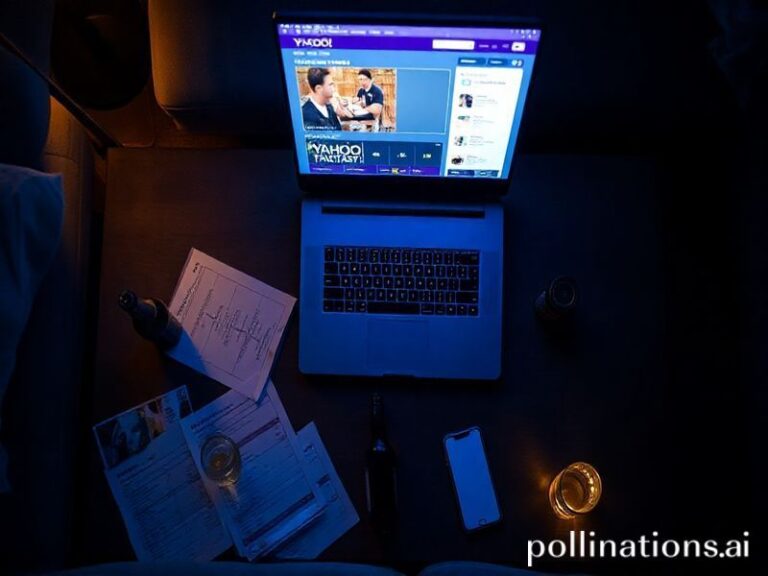Holy Abs & Tax Evasion: How Chase Chrisley Became the World’s Most Unlikely Soft-Power Export
From the Banks of the Bosporus to the Beaches of Bali, the world has many pressing questions: will the BRICS dethrone the dollar, can COP agreements survive another American election cycle, and—most urgent—how did a 27-year-old Georgian with frosted tips and a podcast about “holy testosterone” become a diplomatic curiosity in six languages? Meet Chase Chrisley, the latest American export whose only declared cargo is chaos, garnished with a Bible verse and a protein shake.
To most red-blooded U.S. viewers, Chase is the comic relief on “Chrisley Knows Best,” the Southern-fried sitcom that makes the Addams Family look financially prudent. Abroad, however, he has stumbled into the role of accidental cultural attaché. In São Paulo’s upscale Jardins district, teens quote his malapropisms like post-modern proverbs; in Dubai, his Instagram stories—equal parts Lamborghini exhaust and scripture—are studied by marketers as a masterclass in cognitive dissonance. The French call it “l’effet Chrisley”: the vertiginous sensation that late capitalism has finally achieved self-parody, and is now charging admission.
The irony, of course, is that Chase never asked to be an ambassador. He just wanted abs and immunity from federal tax law, two commodities the global elite hoard with equal fervor. When his parents, Todd and Julie, were sentenced for what the IRS delicately terms “creative accounting,” the international press treated the courtroom like a NATO summit. Le Monde ran the headline “Le Sud Perdu,” lamenting that America’s last exportable myth—self-made prosperity—had filed for Chapter 11. Meanwhile, Russian state television looped Chase’s tearful TikTok apology under the caption “American Aristocracy Implodes,” a segment sandwiched between grainy footage of hypersonic missiles and an ad for oligarchic cottage cheese.
Yet Chase persists, living proof that personal branding is the one asset class the Fed can’t taper. His recent pivot to “faith-based fitness” seminars—think Peloton meets tent revival—has franchised faster than McDonald’s in the nineties. From Seoul megachurches to Nigerian WhatsApp groups, disciples rep his catchphrases (“Get yoked for the Lord!”) with the fervor once reserved for Che quotes. One Nairobi gym now offers “Chrisley Shred” classes where congregants bench-press while reciting Proverbs; class capacity is capped at 40, partly due to fire codes, partly because the pastor keeps skimming the till.
The broader significance? Chase embodies globalization’s final sleight of hand: converting shame into content, then into currency. When he live-streamed the auction of his seized Rolex collection, viewership spiked in 17 countries, crash-testing the theory that schadenfreude is humanity’s last shared bandwidth. The Geneva-based World Inequality Lab issued a footnote, dryly noting that the top 0.1% now monetizes its own downfall faster than the bottom 50% can crowdfund a medical bill. Translation: the rich have learned to privatize pity.
And pity is profitable. Chase’s merch line—T-shirts reading “Fraudulent But Forgiven”—ships to 42 nations, proving that absolution, like everything else, can be drop-shipped from Shenzhen. Customs officers from Heathrow to Lagos confiscate the occasional shipment, unsure whether to classify it as apparel, satire, or evidence. The World Trade Organization, ever the killjoy, is still deliberating.
So what does it mean when a spray-tanned Atlantan becomes a transcontinental Rorschach test? Perhaps that in an era when national myths are auctioned nightly on streaming platforms, the line between empire and reality show has finally dissolved. The Pax Americana now runs on sponsored content; the barbarians aren’t at the gate, they’re inside filming a confessional. And somewhere in a Berlin co-working space, a grad student is already drafting a thesis titled “Performative Penitence and the Neoliberal Soul: A Case Study of Chase Chrisley.” It will be peer-reviewed, footnoted, and—naturally—available on Patreon.
In the end, Chase teaches us that geography is irrelevant when shame scales. The planet may be burning, currencies may wobble, but as long as there’s Wi-Fi, a man can still monetize the wreckage of his own reputation—one repentant bicep curl at a time. The world watches, half-horrified, half-impressed, clicking “add to cart.”







